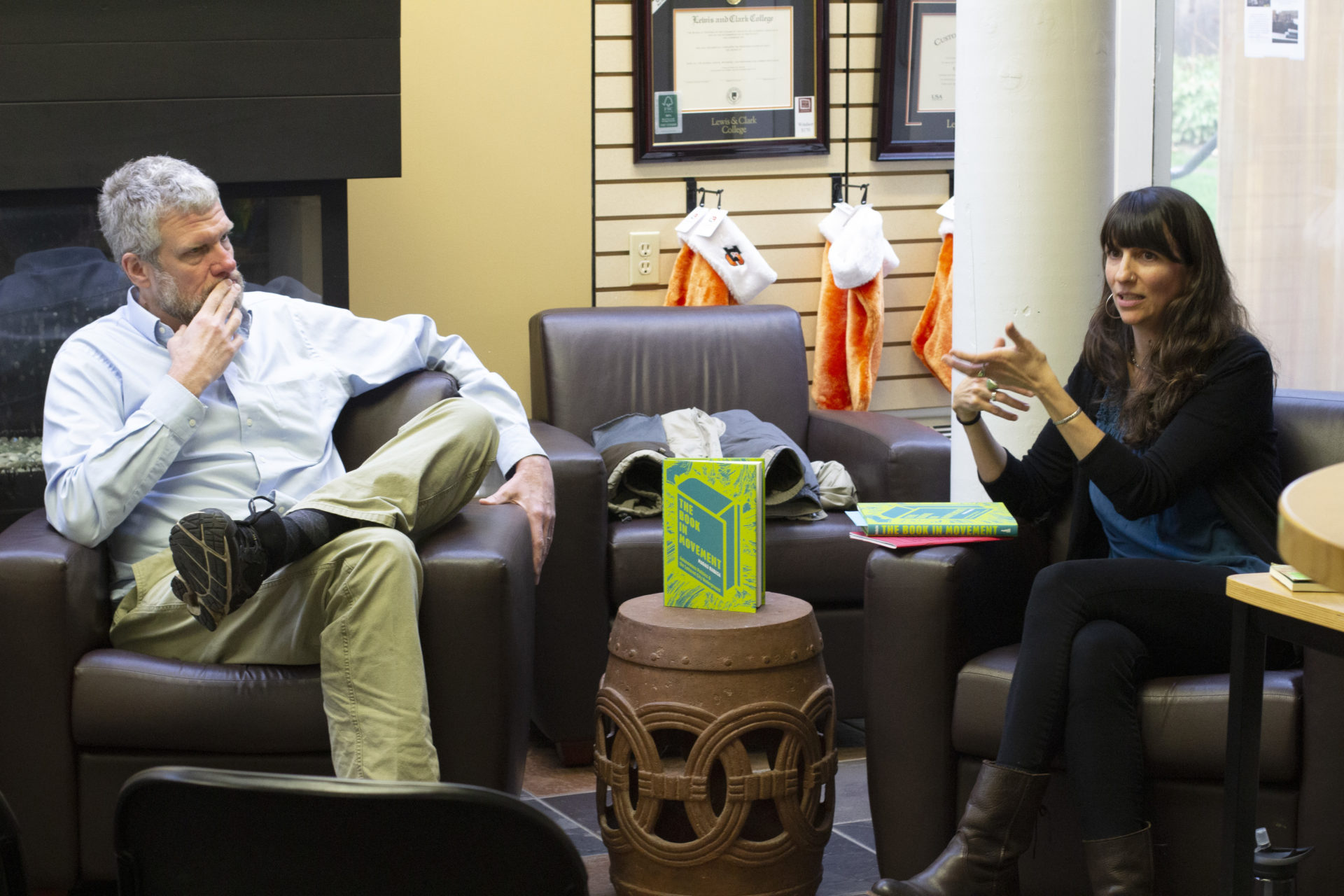
Assistant Professor of Hispanic Studies Magalí Rabasa’s new book, “The Book in Movement: Autonomous Politics and the Lettered City Underground” was featured in a bookwarming hosted by Assistant Professor of English Jerry Harp. The book investigates the world of political underground publishing in Latin America.
The bookwarming is an event designed to introduce a book to a community.
“Bookwarmings are in the spirit of liberal arts … it is absolutely crucial that we have as many different voices here as possible,” Harp said.
This is Harp’s 16th year hosting them, and he has moved from doing simple introductions of the books to interviewing the authors in front of the audience about their process in making the book.
Harp has interviewed a variety of faculty about their books, in subjects ranging from math to chemistry to bookmaking.
“It is important to discuss research because so much time went into these books,” Harp said. “I think it is really good for students to see us in this other mode. We do not just give the (students) writing and research assignments — we engage in it.”
Rabasa certainly did her research — around 10 years of it. She began in 2009 in Mexico City, a place she had lived in and had contacts in, then went on to investigate underground publishing in Bolivia and Argentina, which were less familiar to her.
“When I started in Mexico City, I was there as a researcher, but also working as … an active member of their publishing project,” Rabasa said. “In Bolivia and Argentina, I really relied on the connections that the folks in Mexico helped facilitate for me.”
Mixing her academic life with her activism helped further her research. She established connections for her book by actively helping with the production of books in the underground book publishing community.
“There were certainly moments where I was nervous,” Rabasa said. “Activists are rightfully skeptical of academics … I emphasized that yes, I was doing a research project, but I was also doing it as a participant in these projects.”
Throughout her text, Rabasa uses the term “organic book.” According to Rabasa, this term describes when “the relationship between the content of the book and its materiality are being brought together intentionally.” To give an example of this, she showed two different copies of the same book she found during her research about migrants in the textile industry in Buenos Aires, Argentina. The “organic” edition had a handmade cover of cardboard and recovered fabric scraps from textile workshops, while the other was printed more traditionally.
“It was really exciting to me to see how the actual crafting of the object was taken as a part of the political imagination of these movements,” Rabasa said. “The makers really were taking seriously the importance of the tools, the technology and the materials that accompany them in the perhaps more abstract, or less tangible, political endeavors.”
Rabasa also has an interest in the copyright page, enough so that it takes up an entire chapter of her book. Things such as the absence of a copyright page and the inclusion of a creative commons license indicate a distaste for complete ownership of intellectual property.
On a whim, she created a miniature “zine” version of her book to distribute in Argentina to show her progress to the people she had worked with. Within them, she placed a large backward C, which symbolizes the “copyleft” symbol.
Rabasa explained the meaning and implications of this symbol.
“Copyleft is one of the ways people renegotiate intellectual property,” Rabasa said. “It essentially means: do whatever you want with this.”
Though “The Book in Movement” came out in the spring of 2019, Rabasa was on parental leave and unable to do a bookwarming until now. Her book, then, is new to the community of LC to which it was showcased. Rabasa commented on the feeling that comes alongside publishing and being able to promote a finished product that has been so long in the making.
“There is something about celebrating a momentous point in the research project, which is its publication,” Rabasa said. “There is something worth marking when you get the result in your hand.”
“The Book in Movement” can be purchased in hardcover at the LC bookstore or checked out from Watzek library.
Subscribe to the Mossy Log Newsletter
Stay up to date with the goings-on at Lewis & Clark! Get the top stories or your favorite section delivered to your inbox whenever we release a new issue.

Leave a Reply